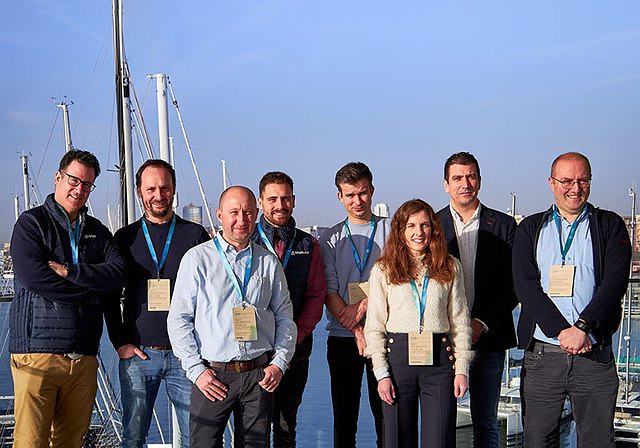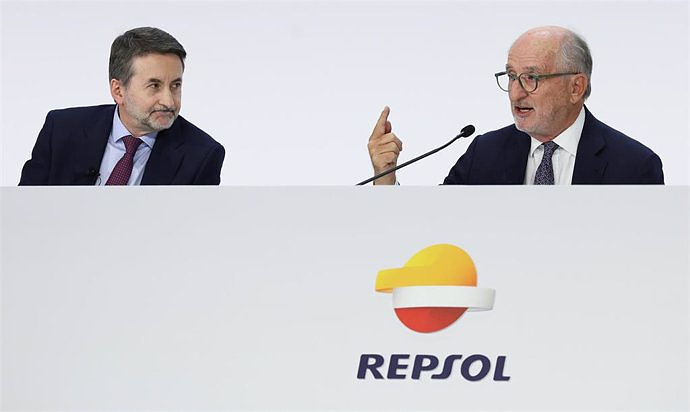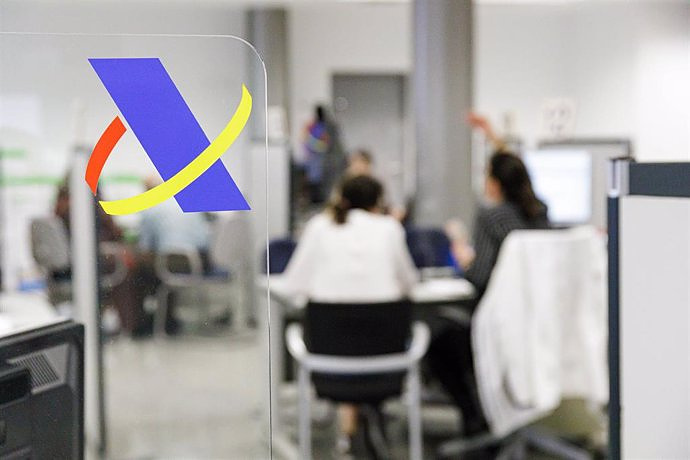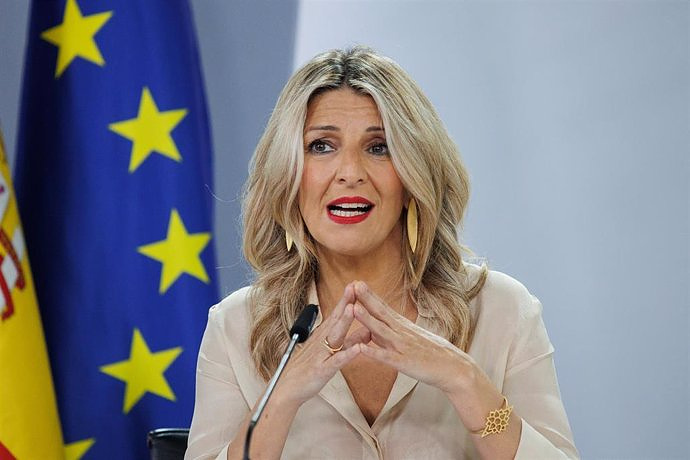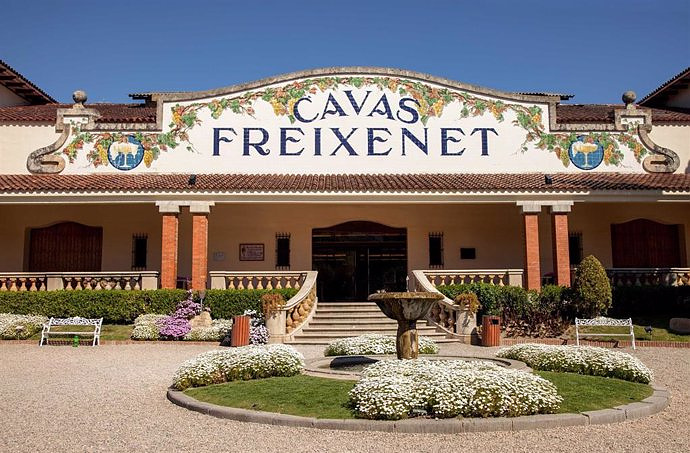VALENCIA, 6 Feb. (EUROPA PRESS) -
The European Commission has awarded 3 million euros to the 'Seal-Hydrogen' project, an initiative aimed at improving the efficiency and boosting the scalability of a new generation of electrolyzers for the production of green hydrogen, the clean energy of the future.
Led by the Universitat de València (UV) and in a consortium with its spin-off Matecco, Siemens Energy, Grupo Horiba and the HI ERN, the project is part of the European Hydrogen Strategy through Research and Innovation Actions (RIA -HEurope).
'Seal-Hydrogen', funded by the European Executive Research Agency (REA), is developing a new high-efficiency electrolyser that reduces the costs of producing green hydrogen, an essential element for the energy transition and the decarbonization of the economy, in line with the global objective of combating the effects of climate change, explains the Valencian university in a statement.
Green hydrogen produced through electrolysis - separation of water molecules into their two components using renewable energy - is a promising alternative in the transition towards a more sustainable energy system, since it is an energy source that only emits steam. of water and does not leave residues in the atmosphere. However, they point out, the high costs involved in the current production systems of this clean fuel make its large-scale application difficult.
Energy costs are the main factor determining the levelized cost of green hydrogen. Increasing efficiency is, therefore, an essential lever to reduce your production costs. For this reason, the European Union's Research and Innovation framework program 'Horizon Europe' (2021-2027), in line with the European Hydrogen Strategy to create a climate-neutral Europe, is committed to projects that promote the production of renewable hydrogen, reduce their costs, develop storage and distribution solutions, and stimulate their use as fuel, especially in sectors that are difficult to decarbonize.
This is the case of 'Seal-Hydrogen', financed entirely with 3 million euros of RIA Shares. Directed by Gonzalo Abellán, researcher at the Institute of Molecular Science (ICMol) of the University of Valencia and co-founder of Matteco, the project will grow supported by an international public-private consortium formed by Siemens Energy - world leader in energy technology -, Horiba Group - one of the largest manufacturers of analytical and spectroscopic systems and components -, the Helmholtz Institute Erlangen-Nürnberg for Renewable Energy (HI ERN), the University of Valencia itself and its spin-off Matteco.
Seal-Hydrogen's goal is to develop a sustainable, lower-cost, efficient and scalable electrolyzer that combines the advantages of established conventional systems with cutting-edge innovations to make production more cost-competitive. The proposed technology replaces the use of catalysts based on precious metals - platinum or iridium - with others that do not require critical raw materials, such as nickel and iron, and allows higher current densities and greater efficiency, which makes more sustainable electrolyzer production and reduces costs for green hydrogen producers.
This is a new range of "highly efficient" catalysts that are easy to synthesize on a large scale using an innovative process patented by the University of Valencia and licensed to Matteco. "We seek to achieve higher current densities and efficiencies, introducing cutting-edge innovations in materials science, catalyst design and process engineering," explains Gonzalo Abellán, also responsible for the European project and coordinator of the consortium.
"It is inspiring to carry out a tangible transfer of knowledge and technology, from initial conception in the laboratory, through the field of experimentation and finally transforming it into a concrete application for the green hydrogen industry. We are proud to collaborate with leading organizations in this field, bringing together the best of industrial and academic talent," adds Abellán.
Aligned with the European Union's ambitious goal of installing at least 40 GW of renewable hydrogen electrolyzers by 2030, the Seal-Hydrogen project reduces energy consumption and increases the efficiency of electrolysis to transform the economics of large-scale production and facilitate the mass adoption of green hydrogen.

 Exploring Cardano: Inner Workings and Advantages of this Cryptocurrency
Exploring Cardano: Inner Workings and Advantages of this Cryptocurrency Seville.- Economy.- Innova.- STSA inaugurates its new painting and sealing hangar in San Pablo, for 18 million
Seville.- Economy.- Innova.- STSA inaugurates its new painting and sealing hangar in San Pablo, for 18 million Innova.- More than 300 volunteers join the Andalucía Compromiso Digital network in one month to facilitate access to ICT
Innova.- More than 300 volunteers join the Andalucía Compromiso Digital network in one month to facilitate access to ICT Innova.-AMP.- Ayesa acquires 51% of Sadiel, which will create new technological engineering products and expand markets
Innova.-AMP.- Ayesa acquires 51% of Sadiel, which will create new technological engineering products and expand markets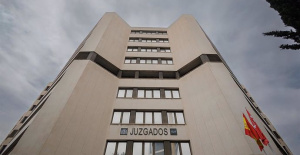 The judge who admitted the complaint of Clean Hands against Begoña Gómez interrogates two media officials this Friday
The judge who admitted the complaint of Clean Hands against Begoña Gómez interrogates two media officials this Friday Thousands of people in Palma demand to defend Catalan against the "involutionary policies" of "a fanatical minority"
Thousands of people in Palma demand to defend Catalan against the "involutionary policies" of "a fanatical minority" Menotti, maestro of Argentine football since the 1978 World Cup, dies
Menotti, maestro of Argentine football since the 1978 World Cup, dies The amnesty faces its final stretch in the Senate with the question of whether it will be voted this week or after the Catalan elections.
The amnesty faces its final stretch in the Senate with the question of whether it will be voted this week or after the Catalan elections. How Blockchain in being used to shape the future
How Blockchain in being used to shape the future Not just BTC and ETH: Here Are Some More Interesting Coins Worth Focusing on
Not just BTC and ETH: Here Are Some More Interesting Coins Worth Focusing on A sensor system obtains the fingerprint of essential oils and detects if they have been adulterated
A sensor system obtains the fingerprint of essential oils and detects if they have been adulterated Faraday UPV presents the 'Origin' rocket to exceed 10 km of flight: "It is the beginning of the journey to space"
Faraday UPV presents the 'Origin' rocket to exceed 10 km of flight: "It is the beginning of the journey to space" The Generalitat calls for aid worth 4 million to promote innovation projects in municipalities
The Generalitat calls for aid worth 4 million to promote innovation projects in municipalities UPV students design an app that helps improve the ventilation of homes in the face of high temperatures
UPV students design an app that helps improve the ventilation of homes in the face of high temperatures A million people demonstrate in France against Macron's pension reform
A million people demonstrate in France against Macron's pension reform Russia launches several missiles against "critical infrastructure" in the city of Zaporizhia
Russia launches several missiles against "critical infrastructure" in the city of Zaporizhia A "procession" remembers the dead of the Calabria shipwreck as bodies continue to wash up on the shore
A "procession" remembers the dead of the Calabria shipwreck as bodies continue to wash up on the shore Prison sentences handed down for three prominent Hong Kong pro-democracy activists
Prison sentences handed down for three prominent Hong Kong pro-democracy activists ETH continues to leave trading platforms, Ethereum balance on exchanges lowest in 3 years
ETH continues to leave trading platforms, Ethereum balance on exchanges lowest in 3 years Investors invest $450 million in Consensys, Ethereum incubator now valued at $7 billion
Investors invest $450 million in Consensys, Ethereum incubator now valued at $7 billion Alchemy Integrates Ethereum L2 Product Starknet to Enhance Web3 Scalability at a Price 100x Lower Than L1 Fees
Alchemy Integrates Ethereum L2 Product Starknet to Enhance Web3 Scalability at a Price 100x Lower Than L1 Fees Mining Report: Bitcoin's Electricity Consumption Declines by 25% in Q1 2022
Mining Report: Bitcoin's Electricity Consumption Declines by 25% in Q1 2022 Oil-to-Bitcoin Mining Firm Crusoe Energy Systems Raised $505 Million
Oil-to-Bitcoin Mining Firm Crusoe Energy Systems Raised $505 Million Microbt reveals the latest Bitcoin mining rigs -- Machines produce up to 126 TH/s with custom 5nm chip design
Microbt reveals the latest Bitcoin mining rigs -- Machines produce up to 126 TH/s with custom 5nm chip design Bitcoin's Mining Difficulty Hits a Lifetime High, With More Than 90% of BTC Supply Issued
Bitcoin's Mining Difficulty Hits a Lifetime High, With More Than 90% of BTC Supply Issued The Biggest Movers are Near, EOS, and RUNE during Friday's Selloff
The Biggest Movers are Near, EOS, and RUNE during Friday's Selloff Global Markets Spooked by a Hawkish Fed and Covid, Stocks and Crypto Gain After Musk Buys Twitter
Global Markets Spooked by a Hawkish Fed and Covid, Stocks and Crypto Gain After Musk Buys Twitter Bitso to offset carbon emissions from the Trading Platform's ERC20, ETH, and BTC Transactions
Bitso to offset carbon emissions from the Trading Platform's ERC20, ETH, and BTC Transactions Draftkings Announces 2022 College Hoops NFT Selection for March Madness
Draftkings Announces 2022 College Hoops NFT Selection for March Madness